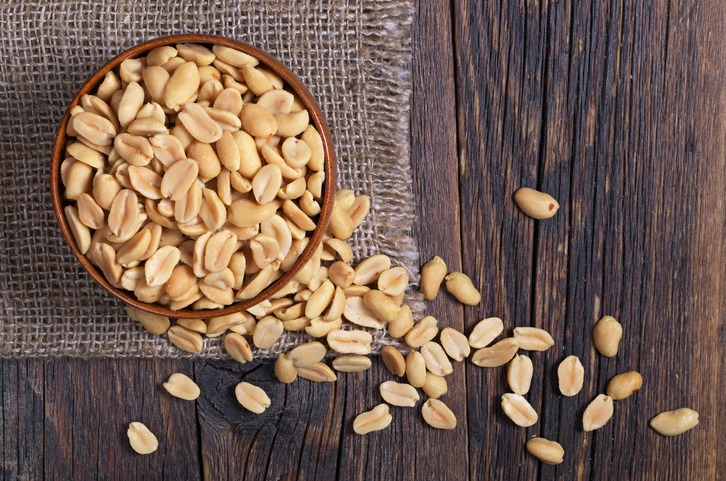
As reported by The Independent, researchers said that introducing allergens in small quantities between four and six months of age reduces the risk of developing the condition
Peanut allergy incidences could plummet by 77% if products containing the nutrient were part of babies’ diets at four to six months of age, scientists have said.
Researchers in the UK have said they have identified a ‘clear window of opportunity’ where introducing an allergen into a baby’s diet when they are between four and six months old significantly reduces the risk of developing the condition.
They added that waiting to introduce the peanut products until the children are a year old would lead to only a 33% reduction in cases.
The NHS currently recommends introducing solid foods to babies from around six months of age, when they are seen as being developmentally ready.
Based on their findings, recently published in The Journal Of Allergy And Clinical Immunology, scientists are calling for the government to review the latest evidence.
Professor Graham Roberts, from the National Institute for Health and Care Research (NIHR) Southampton Biomedical Research Centre and University of Southampton, said that the last Government review was in 2018 and since then there have been numerous studies that show that introducing foods from three to four months of age “very successfully reduce the chances of developing peanut allergy and other food allergies as well”.
Peanut allergy affects around two per cent (one in 50) of children in the UK and has been increasing in recent decades, according to Allergy UK.
Most peanut allergies have already developed by the time a child turns one year of age.
It is more common in children with severe eczema and egg allergy, the researchers said, and children of non-white ethnicity are also more likely to be affected.


Be the first to comment